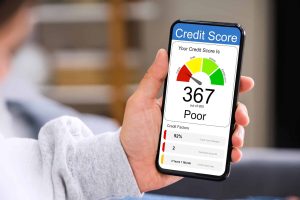Key takeaways
- Unexpected expenses can be stressful and overwhelming, but having a plan in place can help alleviate some of the anxiety.
-
Options for paying unexpected expenses include payment plans, credit cards, personal loans and home equity loans.
-
To prepare for unexpected expenses in the future, it’s recommended to have an emergency fund and consult with a financial adviser for guidance.
According to Bankrate’s 2024 Annual Emergency Savings Report, 27 percent of adults have no emergency savings. For those who do have money for unexpected expenses, only 44 percent of adults would pay for an emergency expense of $1,000 or more out of their savings.
There are financing options — like loans and credit cards — and you may have access to hardship relief or repayment programs. In the case of an emergency, you may not have all the time in the world to slow down and consider every single option in-depth, but make sure you’re at least aware of the resources you have at your fingertips.
5 tips for paying unexpected expenses
If you have the ability and time to do so, compare each option to determine which is most ideal for your financial situation — whether it’s in the form of more competitive interest rates, cost-savings or more affordable monthly payments.
1. Request a payment plan
Depending on the type of expense, you may be able to work out a payment plan. If you’ll need to pay a service provider for unexpected expenses, there may be programs available that allow you to pay what you owe in weekly, biweekly or monthly increments, with or without interest.
Many medical providers also offer payment plans to make healthcare costs affordable — and nonprofit hospitals are legally required to provide charity care when requested. You can break the amount you owe into small monthly payments that work for your budget. Even better, most medical debt can be repaid without the added interest or fees if you uphold your end of the bargain by making the agreed-upon monthly payments.
2. Put it on a credit card
You could get a 0 percent APR credit card if you have good or excellent credit. These cards come with a promotional interest-free period, typically between 6 and 21 months. Ideally, you only want to spend as much as you can afford to pay off the balance within the promotional period. Otherwise, you’ll pay interest on the remaining amount once the introductory period ends.
If you’re unable to qualify for a 0 percent APR credit card or would prefer to use another card you already have, be sure to devise a strategy to repay your outstanding balance sooner rather than later. Consider cutting your spending plan to free up funds for extra credit card payments. That way, you won’t spend several months or years paying down the card, and you’ll minimize the interest you pay to the credit card issuer.
3. Borrow a personal loan
If you need to get money you don’t have quickly, your best option may be applying for a personal loan. While you can get a loan from traditional banks, credit unions or online lenders, Liz Modesitt, manager of virtual banking with First Bank, notes that credit unions often boast the lowest borrowing costs. However, keep in mind that membership is required to qualify.
If you need money fast, online lenders may be the better option. Al Goldstein, Executive Chairman and Co-Founder of Avant, says that the new wave of online lending platforms is using advanced underwriting methods to accurately factor in risk. “Applications take minutes to complete and consumers can receive funds as soon as the next business day.”
Consider prequalification, if the lender offers it, to determine your eligibility for funding and view potential interest rates. You can also calculate your monthly payment separately to compare multiple offers at once.
4. Consider a home equity loan
A home equity loan lets you borrow against your home’s, so it can be useful if you need to pay for larger, long-term emergencies. It should only be used as a last resort since it acts as a second mortgage, and you could lose your home if you fall behind on payments.
The interest rate on home equity loans is typically competitive, but you’ll need good or excellent credit to qualify. Funds are disbursed in a lump sum and payable in equal monthly installments over a set period.
You can also take out a home equity line of credit (HELOC). Rather than a lump sum, you’ll get access to a revolving line of credit to pull from as needed during your draw period. It has the same risks as a home equity loan, but you will only pay interest on the money you use.
5. Conduct a financial audit
If a payment plan isn’t an option and you prefer not to use debt to pay for unexpected expenses, conduct a financial audit. You may be able to rework your budget or cancel subscriptions to free up some extra cash each month. Consider the following ideas when combing through your monthly budget and spending habits.
- Rework your budget in the short term to create more disposable income
- Sell items that you no longer need
- Cancel any extra services or activities until you get back on your feet
- Pick up odd jobs or overtime at work to boost your earnings.
How to plan for unexpected expenses
Rather than let unexpected expenses throw you into a tailspin, you can prepare in advance to handle these types of inevitable events.
- Create a budget with money for unexpected expenses: Creating and following a budget is a good practice. Doing this can help control your impulse spending and allow you to manage money more effectively. A monthly or weekly budget can also be helpful in shielding you from the impacts of unexpected expenses if you build money into your budget to cover such financial curveballs.
- Establish an emergency fund: Each time you get paid, set aside a small portion of your income in an emergency fund. You can even set up automatic deposits to your savings account each payday. As a general rule, your emergency fund should have enough to cover three to six months of living expenses.
- Increase your credit score: By working on your credit score ahead of time, you can make it easier to access personal loans or credit cards with competitive interest rates should you need to access credit or borrow money in an emergency.
- Don’t max out credit cards: While credit cards are not the ideal first choice for unexpected expenses because of high interest rates, it is important to have this option available for true emergencies. With this in mind, be careful not to max out your credit card, leaving you with no room for potential emergencies.
Bottom line
When you face a financial emergency, you can find relief by reaching out to service providers or creditors to request a payment plan or by reworking your budget to free up cash. There are also loan options you can turn to as a temporary source of relief to get over the financial hump, but in general, focusing on building emergency savings will be the best way to tackle any future unplanned expenses.
Read the full article here
















